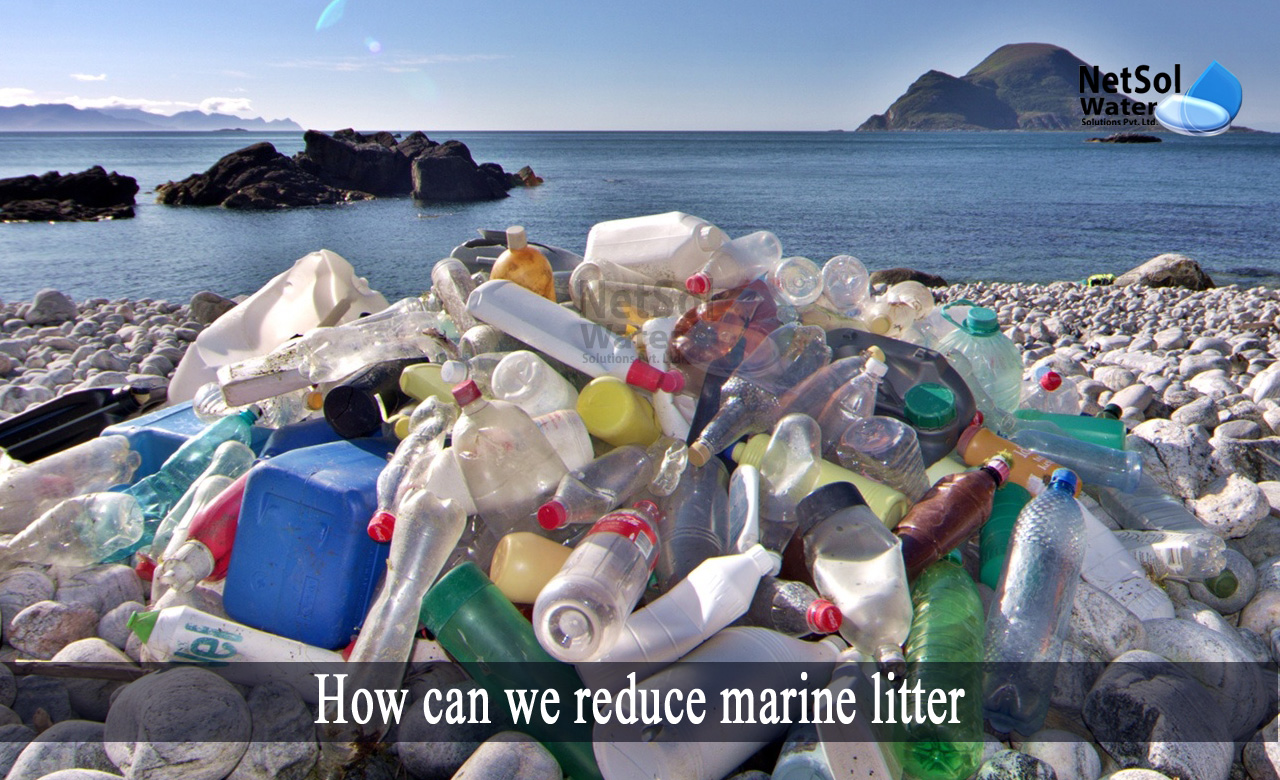Introduction
The worldwide impact of our local deeds and inactions is marine plastic waste. The emphasis should not just be on reducing plastic, but also on developing economic models, developing strategies, and accurately forecasting future consumption patterns, to reduce marine litter.
What is marine litter?
Marine litter is any persistent, manufactured, or processed solid material that is discarded or abandoned, in coastal and marine settings. It is a problem that affects coastal areas and sea floors all around the world.
Marine litter production
Currently, marine waste generation, particularly the plastic issue, has become out of control. Its societal and environmental repercussions are incalculable and irrevocable.
It has an impact on local, regional, national, and worldwide scales, with negative consequences for human health, aesthetics, the economy, public perception, and biologic interactions.
How can we reduce marine litter?
· Reduce the use of single-use plastic
The global campaign encourages and implores people to eliminate single-use plastics, which would otherwise end up in our oceans. Today, we see that plastic waste, like climate change, has become a global issue.
Because, of its low recycling value, plastic waste, predominantly single plastics, dominates marine litter and is not collected. Whereas, plastic pollution is a major issue in and of itself, it pales in comparison to the threat posed by microplastics.
When plastic remains in the environment for an extended period of time, it degrades into tiny bits, known as microplastics, which endanger marine ecosystems.
· Proper Waste Management
The main problem which needs our attention is the lack of infrastructure, as well as, the unsustainable waste management.
One of the simplest methods to reduce ocean pollution is to properly dispose of plastics and other recyclable materials, so they do not end up in the ocean. In public sites such as beaches and parks, waste should be disposed of in a secure container or carried home with you.
It should go without saying, but always recycle single-use (or other) plastics that can be recycled. Currently, just 9% of plastic is recycled globally. Recycling keeps plastic out of the environment, and reduces the amount of "new" plastic on the market.
Netsol Water is Greater Noida-based leading water & wastewater treatment plant manufacturer. We are industry's most demanding company based on client review and work quality. We are known as best commercial RO plant manufacturers, industrial RO plant manufacturer, sewage treatment plant manufacturer, Water Softener Plant Manufacturers and effluent treatment plant manufacturers.
· Waste from industries should be recycled
Consumers and private sector manufacturers both play important roles, in the overall picture of reducing marine waste.
The following methods may help the industry, to accelerate the collection and recycling of plastic waste:
· Sharing best practices in product design to facilitate collection and recycling,
· Assisting with collecting as part of their Extended Producer Responsibility (EPR),
· Introducing value addition in recycling,
· Closing the material usage loop through the use of circular economy concepts.
Conclusion
All available methods, techniques, information, and equipment aimed to eradicate, or mitigate the impacts of marine litter should be implemented. Similarly, solutions must provide the greatest value in terms of reducing environmental vulnerability, due to associated dangers.
How can we assist?
To protect our oceans, we offer a variety of modern solutions such as waste management, water treatment, wastewater treatment, sewage treatment, and much more. These services are available to our clients globally. We also advise our clients on ways to reduce plastics and waste disposal into the oceans.
Apart from this 24x7 customer support is our USP. Call on +91-9650608473, or write us at enquiry@netsolwater.com for any support, inquiry or product-purchase related query.



